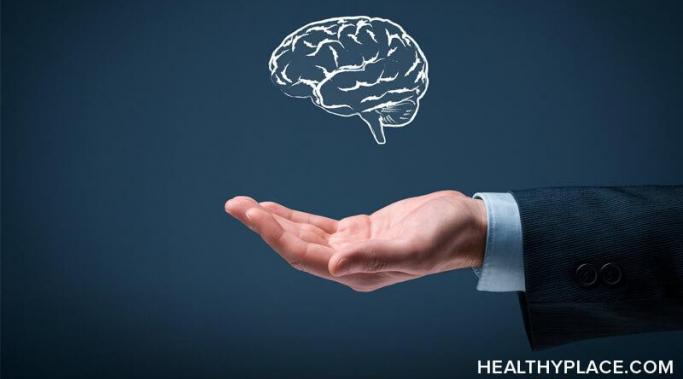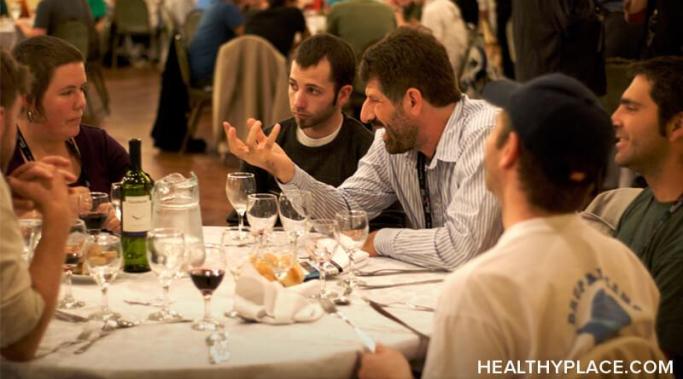My anxiety over health insurance since my divorce 15 months ago, is increasing daily. While married, I was covered as a dependent under Tricare, the military’s insurance. When I moved to Idaho and eventually divorced, I found myself in what is called "the gap" in Idaho's health care coverage.1 It is a hole in Idaho’s health insurance plan where thousands of Idahoans do not have affordable access to healthcare coverage. Because my daughter is on her father’s insurance, I am not eligible for Medicaid. As it stands, I receive no tax credit for insurance because of my income bracket. Therefore, affordable rates for health insurance aren't available to me. I need anxiety treatment, and this anxiety over health insurance is not helping.
Anxiety Videos – Anxiety Schmanxiety
Anxiety jabbers incessantly, creating maddening and anxious running commentary in our heads. To make it worse, anxiety acts as a translator and interprets what we hear and see, twisting things into its own warped ideas. With anxiety translating messages we receive, we often misinterpret the world around us. Anxiety's untrustworthy thoughts lead to self-doubt, faulty reasoning, negative beliefs, overthinking, and overanalyzing. Becoming aware of how the anxious voice in your head translates our incoming messages is an important step in correcting the translations and quieting the anxious running commentary that interrupts your inner speech.
As life-disrupting and misery-creating as anxiety can be, it’s often difficult to know when you should see a doctor about anxiety symptoms. Learning when you need anxiety help will help you feel more confident and less anxious about your decision. Use the following information to help you decide if and when you should see a doctor for anxiety.
I’m Cheryl Slavin, the new co-author of Anxiety-Schmanxiety. I have had symptoms of my primary disorder, obsessive-compulsive disorder (OCD), since I was five years old. Generalized anxiety disorder (GAD) was also an early companion. As the sixth grade’s favorite dodgeball target, I was bullied in elementary school and developed social anxiety disorder (SAD). I am also afflicted with bipolar disorder.
Defusion means becoming unstuck from something, in this case, anxiety. Anxiety often looms large. It consumes our thoughts and emotions and it impacts our actions, too. Anxiety sticks to us, and we to it when all of our time and energy, thoughts and feelings, actions or lack of action are fused with anxiety. To reduce anxiety, we need to separate ourselves from anxiety. In acceptance and commitment therapy (ACT), this is called defusion. Defusion can really help with anxiety.
Social anxiety and performance anxiety both involve a great deal of fear, worry, and dread. When it comes to anxiety in general, that’s not unique. All types of anxiety disorders involve some type of fear, a whole lot of worry, and an overarching sense of dread. It’s the nature of the anxious thoughts and emotions that define a particular type of anxiety. With social anxiety disorder, the apprehensions largely involve fear of being judged or embarrassed in social situations. In this, social anxiety is a close cousin of another type of anxiety: performance anxiety. Understanding their relationship will help you reduce both social anxiety and performance anxiety.
If you live with anxiety, chances are pretty good that you’ve heard a well-meaning family member or friend tell you, “Just get over it,” "Just get over anxiety." If it were that easy, no one would have anxiety because we’d all get over it and move on (‘Get Over It’ Is Unhelpful Advice for Mental Illness Sufferers). Unfortunately, the idea of just getting over it doesn’t help anxiety, and being told to do so can make it worse. Why doesn’t hearing “Just get over it,” fail to help anxiety? What can you do about it?
It's possible to calm the anxiety you experience during the day simply by creating a morning ritual. Whether anxiety obnoxiously wakes you before your alarm sounds or greets you loudly the moment you're awake, beginning the day with anxious thoughts, troubled emotions, and agitated bodily sensations is exhausting and discouraging. Yet if you create a morning ritual to calm anxiety, it doesn't have to ruin your day before it even begins.
It's truly okay to let yourself be anxious. Why? Because sometimes we all just need to allow ourselves to feel how we feel, to be okay with anxious thoughts (Letting Someone with Mental Illness Be Upset). It's even okay to express those anxious feelings. The key is how much we let ourselves be anxious.
Anxiety has a way of ruining relationships, making us feel unlucky in love. As anyone who has ever had a relationship involving two people and an annoying third wheel—anxiety—knows, love can be hard to feel and enjoy when anxiety gets in the way. Take heart: there are things you can do to keep anxiety from ruining your relationship.









